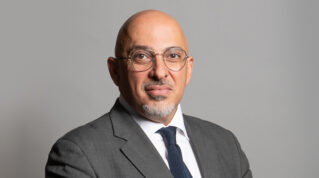Improvements to diversity in academy trust leadership are long overdue, but more data is needed to properly explore the problem, write Alice Gregson and Ed Dorrell.
Academy trusts are now at the heart of our education system. Whatever your view, whatever your politics, it is clear that trusts are here to stay.
So it’s really important that we ask ourselves what a highly effective academy trust looks like. And a fundamental question that forms part of that discussion that has not been explored in any real detail to date is what does (and should) diversity in academy trust leadership look like?
MATs must represent the populations they serve in order to be truly effective
Credit where credit’s due, Schools Week has done a great job of raising this issue – highlighting in particular the lack of ethnic diversity amongst CEOs of some of the largest trusts. But the fact is that we now need more. We need sector-wide data and to look at diversity in its full sense.
If you don’t start first with measuring something, you can’t know if and where the issues might be.
Whilst the DfE publishes data generally on ethnicity and gender among school leadership (up to headteacher level), this does not look specifically at academy trusts.
This needs to change, which is why Forum Strategy, working with Public First, has launched the first national survey on Trust leadership diversity.
The work is being shaped and influenced by a cross section of CEOs and experts from the sector, coming together to form an advisory board: Sir Steve Lancashire, David Watson OBE, Nav Sanghara, Cathy Anwar and Dr Ranjit Manghnani.
Children must see themselves reflected in leadership roles
This is important because MATs must represent the populations they serve in order to be truly effective – it is essential that children of different backgrounds, beliefs and experiences see themselves reflected in leadership roles.
Just as importantly, if trusts are to foster a culture of development, progression and recognition, all teachers and staff from a diverse range of backgrounds, beliefs and experiences must be able to thrive.
Recent analysis by Edurio suggests that four in 10 staff in schools and academy trusts do not feel confident that decisions on promotions are made without bias.
Shockingly, a report prepared for NASUWT shows that over half of all respondents felt they had experienced discrimination during their career: 44 per cent ethnic discrimination, 11 per cent gender discrimination, 10 per cent age discrimination and 10 per cent faith discrimination.
So even whilst we wait for the results of our new survey, it is clear that there is a strong desire for the sector to do much more in this space.
What could that look like?
We do not want to assume we know all of the answers and solutions – our role is to establish the current picture and open up dialogue about sector-led action thereafter. However, based on wider research, there may be things we can do to further diversity.
At a fundamental level, any direct discrimination must be stamped out. A recent report by McKinsey highlights that successful companies of all kinds “should uphold a zero-tolerance policy for discriminatory behaviour, such as bullying and harassment, and actively help managers and staff to identify and address microaggressions”.
The sector will need to be smart about this – dealing with both direct and indirect forms of discrimination head on
But we know that diversity is too often stifled by indirect discrimination and unconscious bias, which is much harder to tackle. That’s why the sector will need to be smart about this – dealing with both direct and indirect forms of discrimination head on.
One solution (among many) that has shown some evidence of positive impact is specific positive action professional development schemes and mentoring.
We have pockets of excellent practice in the sector and the most powerful way to inspire and give confidence to a new generation of leaders is for them to meet the people who have already done it.
LGBTed has shown, for example, what’s possible through its Proud Leadership programme, where 75 per cent of participants achieved a promotion in their school as a result.
We aren’t, of course, going to change this overnight. But if we can find out more about the problem and starting building momentum to tackle it from across the sector, we’ll have at least taken an important first step to establishing a national baseline from which trusts’ can go on to develop effective strategies in this vital area. A step forward that has been long overdue.















Your thoughts